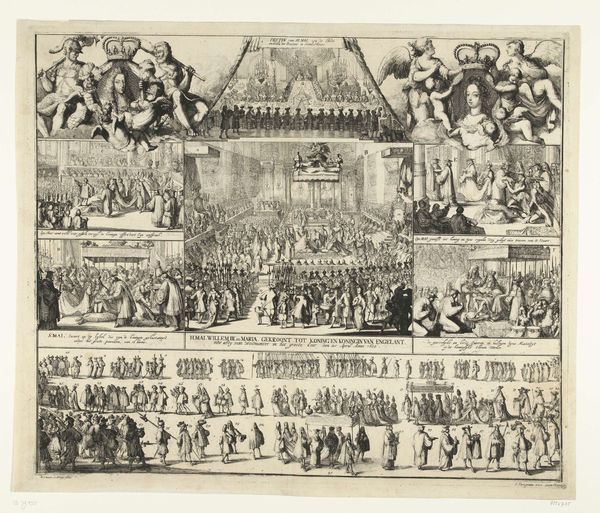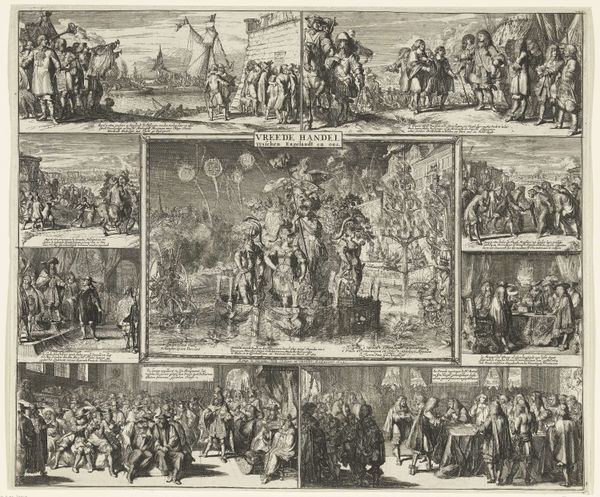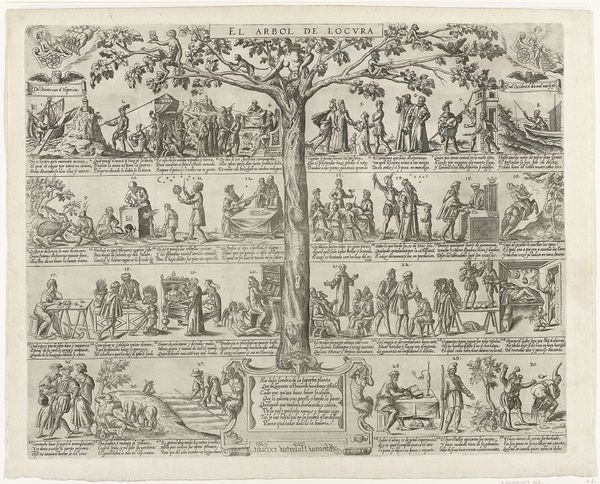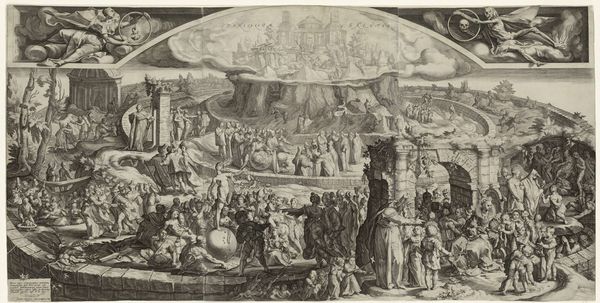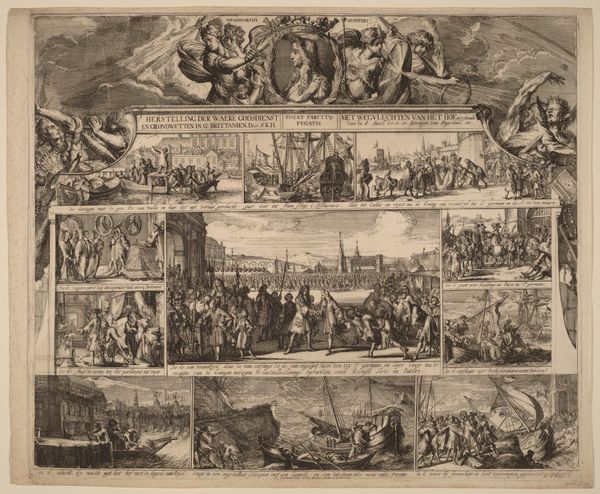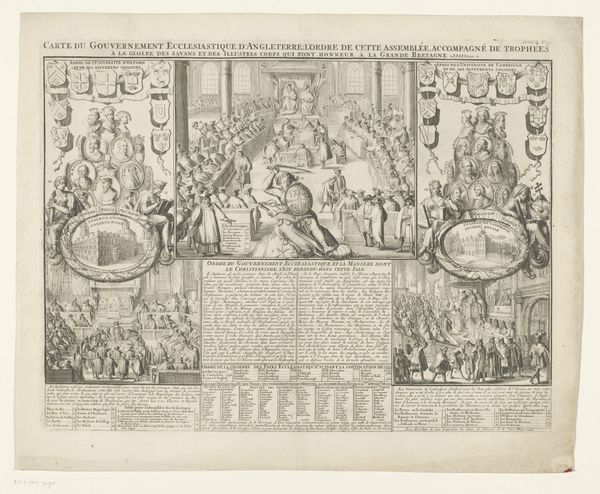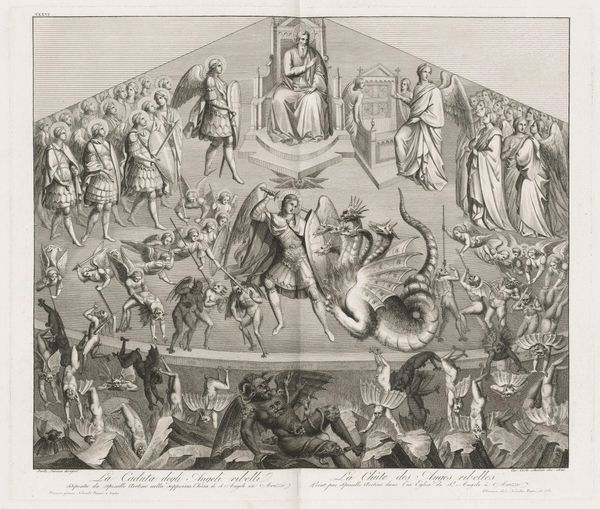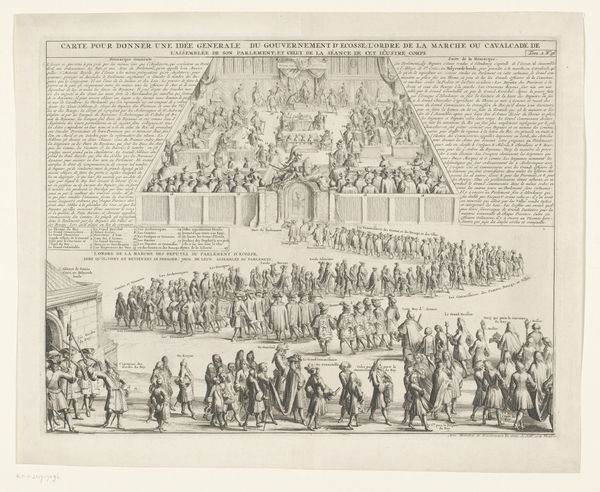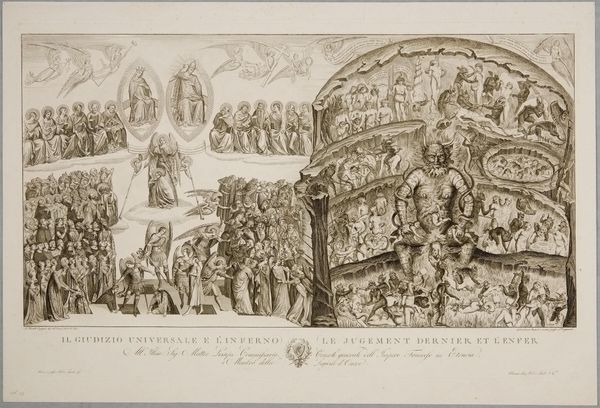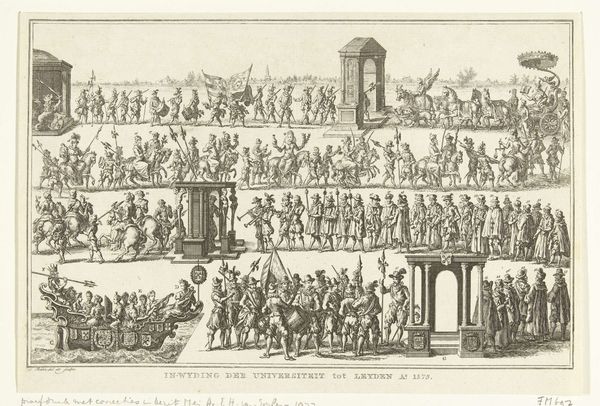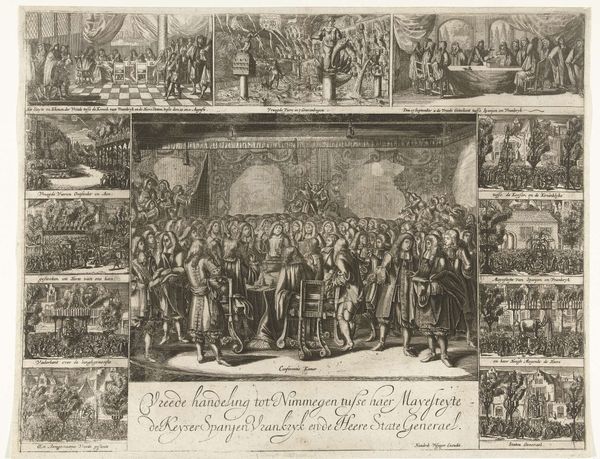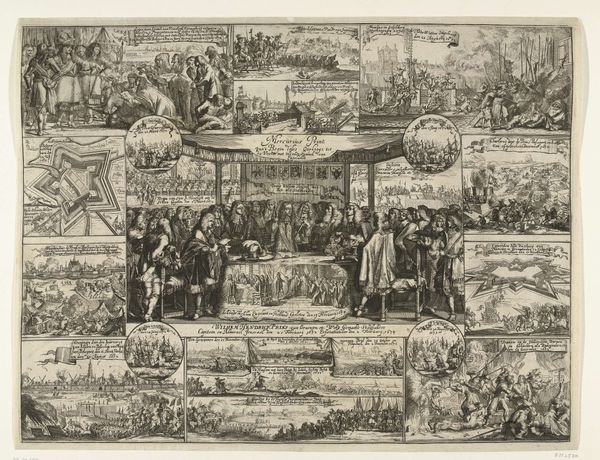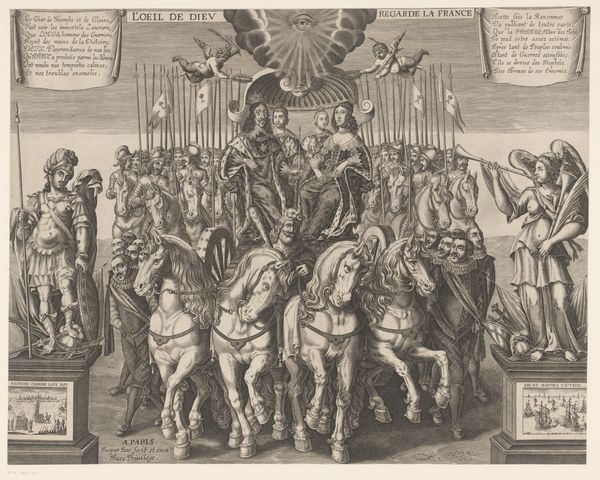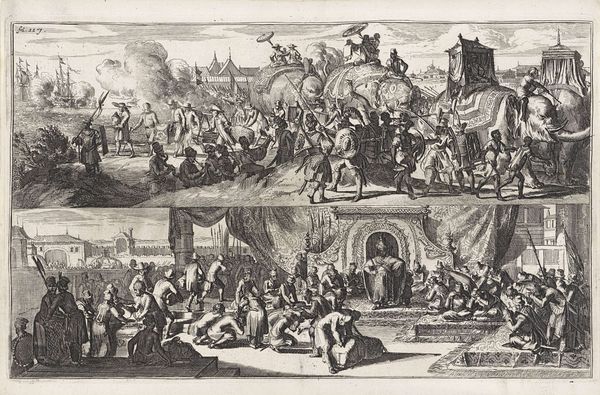
print, engraving
#
allegory
#
narrative-art
#
baroque
#
dutch-golden-age
# print
#
old engraving style
#
figuration
#
line
#
cityscape
#
history-painting
#
engraving
Dimensions: height 336 mm, width 455 mm
Copyright: Rijks Museum: Open Domain
This print, Monument for the Nassau War, was made anonymously in 1625. It's an etching, meaning that the artist would have laboriously scratched an image into a metal plate, which was then inked and used to make impressions on paper. The material qualities of this print – the fineness of line, the monochrome palette – lend it an air of precision and solemnity. This aesthetic effect is crucial, because the image commemorates the Dutch Revolt against Spanish rule. We see scenes of battle, death, and mourning, all rendered in the same even tone. The repetitive nature of printmaking also mirrors the endless cycles of conflict and loss that define war. Prints like this were made to circulate widely. They functioned as propaganda, bolstering support for the Dutch cause. But they also served as a memorial, reminding viewers of the human cost of freedom. By focusing on process and material, we see how this image connects to a broader social and political context, blurring the lines between art, craft, and historical record.
Comments
No comments
Be the first to comment and join the conversation on the ultimate creative platform.
